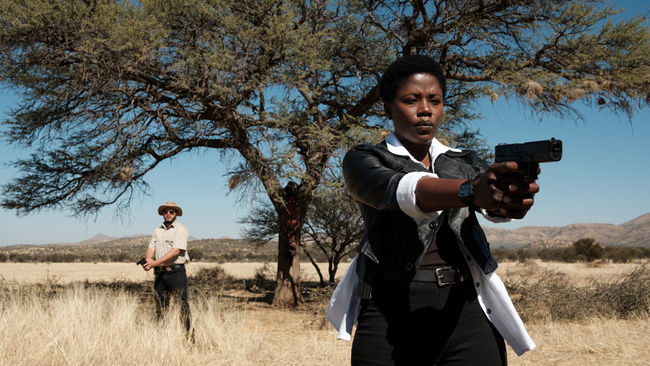“Try to create your own world”
14 April 2023
“It’s a loving gaze” says author Benjamin Bergery, describing the camera work of French cinematographer Hélène Louvart (AFC) during an IFFR Talk as she picked up the fourth annual Robby Müller Award, a collaboration between the Netherlands Society of Cinematographers, Andrea Müller-Schirmer and IFFR. For the occasion, the pair weaved through Louvart’s filmography, searching for the common threads in a career marked by variety – from fly-on-the-wall documentaries, a 3D tribute to choreographer Pina Bausch, and countless heartfelt dramas from directors from Brazil to Croatia.
Louvart calls her work “a series of portraits”, summing a back-catalogue defined by her sensitivity to the figures in front of her camera. Her overarching priority, she tells us, is people and the human condition and as such her work is full of intimacy, one her nature as much as her artistic proficiency helps to create. The gaze her camera has on the actors is not there to intimidate, but “here to help them.” She puts her subjects at ease to remarkable effect. “When I feel that the actors are slightly anxious or nervous, or they don’t remember the line, I am here to help them because I know it is difficult to do what they are doing.”
“The rhythm of natural breathing”
A striking scene from Never Rarely Sometimes Always (2020) by Eliza Hittman, a former IFFR CineMart project and winner of the Silver Bear Grand Jury Prize at Berlinale, is shown as a case in proof. Dealing with the subject of abortion, the film’s young heroine Skylar is interviewed by a social worker on her relationship and sexual history. “Eliza knew exactly what she wanted to say”, she reflects, regarding the film’s topic. “We concentrate on the story, we concentrate on the main character. And that's it.” They went to great lengths to ensure the naturalism of the scene which starred the two non-actors. “We didn't want to trap Sydney into our concepts.”
“We prepared everything, one camera on the table facing her not too close to the eyeline but really frontal to her with a fixed frame. I was nearby, profile. I didn't move because I didn't want them to feel me… we were invisible.”
Such sensitivity is picked up in the statement from the jury of the Robby Müller Award. “Her visuals”, they said, “are effortlessly synchronised with the rhythm of natural breathing, as if they were shot from within and cross the very line between screen and viewer.” Louvart is the fourth to receive the prize which honours an ‘image maker’ who, like Müller, has practised an authentic, moving visual language. She joins fellow recipients Mexican cinematographer Diego García, American director Kelly Reichardt and Thai cinematographer Sayombhu Mukdeeprom.
“I know why I do this job”
From non-actors to Oscar winners, she worked with Olivia Colman on Maggie Gyllenhaal’s The Lost Daughter (2021) for which Colman received an Academy Award nomination. “When you shoot people like this, you say okay, great: ‘I know why I do this job.’” Any mistakes she might have made, no one would notice. “When there is Olivia Colman in front of you, even if the light is not good, the frame is not perfect, nobody sees it. She handles the space, it’s incredible.”
“I don't want to repeat myself”
Louvart says she’s not sure if she has a personal signature in her work, since she’s always working to support the vision of the director she’s working with on a project. “Of course, it's the same tools, but I like to work with different people and as much as possible, I like it when they are different. It's a way to adapt.” Her goal is always to “fight against something that I saw already”, to try something new and take an original approach to every new film. “I think we have to trust what we're doing. Try to create your own world, when it's possible, to maximise your own feeling even if sometimes you think that it's perhaps not good.”
Her advice to filmmakers starting out? “Never to be lazy and never to say ‘okay, this was successful. I will do the same.’”



